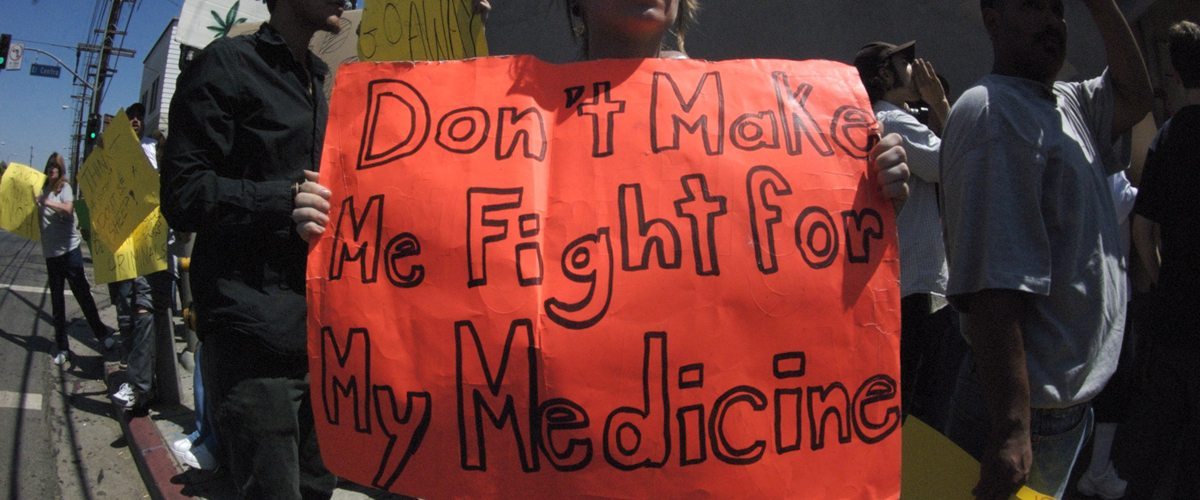[vc_row][vc_column][vc_column_text]
The US Drug Enforcement Administration has removed inaccurate information regarding the safety of cannabis from its website.
In response to a legal petition, the US Drug Enforcement Administration last week removed from its website a nearly 45-page publication filled with misinformation regarding the public health effects of marijuana.
The medical marijuana advocacy organization, Americans for Safe Access (ASA), had filed a petition last December claiming that the DEA’s publication, “The Dangers and Consequences of Marijuana Abuse,” contained “scientifically inaccurate information about the health effects of medical cannabis.”
As of last Monday, the publication was no longer available on the DEA’s website.
“The DEA’s removal of these popular myths about cannabis from their website could mean the end of Washington gridlock,” said Steph Sherer, Executive Director of ASA, in a statement. “This is a victory for medical cannabis patients across the nation, who rely on cannabis to treat serious illnesses. The federal government now admits that cannabis is not a gateway drug, and doesn’t cause long-term brain damage, or psychosis. While the fight to end stigma around cannabis is far from over, this is a big step.”
In the legal petition, ASA alleged that the publication’s 23 false statements, including the myths that cannabis causes psychosis, cancer and destroys cognitive function, were in violation of the federal Information Quality Act. The act, also referred to as the Data Quality Act, is designed to ensure the integrity of information published by government agencies.
ASA argues that there are still two factual inaccuracies that violate the Information Quality Act on the DEA’s website. The organization claims it is particularly concerned about the DEA spreading any misinformation with newly confirmed Jeff Sessions, historically a staunch opponent of cannabis, taking lead over the Department of Justice.
“It is crucial that the DEA correct it’s inaccurate statements, especially in light of Senator Jeff Sessions’ confirmation as Attorney General of the United States,” ASA wrote in a new letter to the DEA. “Attorney General Sessions has made several statements demonstrating his beliefs that cannabis is a gateway drug and that its psychological effects are permanent. These beliefs are verifiably false, as confirmed by the DEA in its ‘Denial of Petition to Initiate Proceedings to Reschedule Marijuana.’
“Allowing Mr. Sessions to make law enforcement decisions based on biased, out-of-date information does a tremendous disservice to ASA’s members and the American people at large,” ASA added.[/vc_column_text][/vc_column][/vc_row][vc_row][vc_column][vc_single_image image=”17313″ img_size=”1200×250″ onclick=”custom_link” img_link_target=”_blank” link=”https://www.medicalmarijuanainc.com/overview-of-u-s-medical-marijuana-law/”][/vc_column][/vc_row][vc_row][vc_column][vc_column_text]The DEA had 60 days from ASA’s request for correction of information to respond. As of February 21, it is two weeks beyond the required deadline.
“We are pleased that in the face of our request the DEA withdrew some of the damaging misinformation from its website,” said Vickie Feeman of the law firm Orrick, Herrington & Sutcliffe, which is representing ASA. “However, the DEA continues to disseminate many damaging facts about the health risks of medical cannabis and patients across the country face ongoing harm as a result of these alternative facts. We are hopeful the DEA will also remove the remaining statements rather than continue to mislead the public in the face of the scientifically proven benefits of medical cannabis.”
Federally, cannabis remains classified as Schedule I, a category reserved for substances with a high potential for abuse and no currently accepted medical use. The classification is in direct contradiction of an August 2016 document published by the DEA itself, which acknowledges cannabis’ pharmacological effects.
While 28 states have passed laws allowing medical marijuana, the gross misinformation being spread about the safety of cannabis has played a significant role in preventing the legalization of marijuana in the U.S.
We’ve detailed what studies have so far found about cannabis and its therapeutic properties. You can learn more about those findings here.[/vc_column_text][/vc_column][/vc_row]






